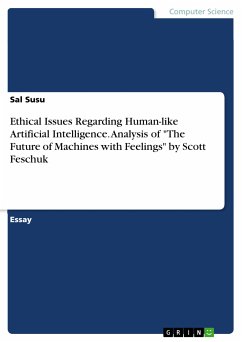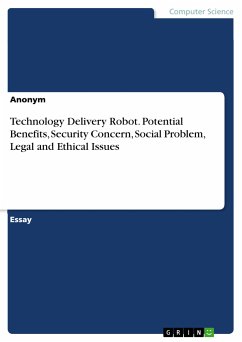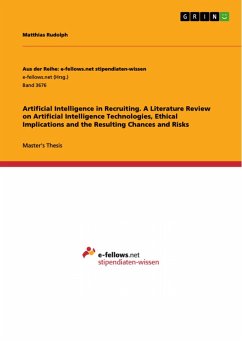Essay from the year 2016 in the subject Computer Sciences - Artificial Intelligence, grade: A, , language: English, abstract: This paper will analyse ethical issues regarding human-like Artificial Intelligence by analysing Scott Feschuk's essay titled "The Future of Machines with Feelings". The essay provides a humoristic yet disapproving approach towards the future of Artificial Intelligence, stating that the possibility of creating robots that can perceive and use emotions is not far off. They will be able to accurately determine people's emotional states by analysing their facial expressions, and monitor gestures or the inflection in peoples' voices. Thus, becoming somewhat like an interactive human being. However, he suggests that such A.I. may not serve society's interests or enhance it at all. Rather, they will be used to violate people's privacy, and spy on what their owners do in the house, whether eating, reading, or cuddling, and this information will be used by companies who will then send the relevant types of advertisements for them to see. For example, if a phone sees that its owner is sad, it might send them a Kleenex coupon. Feschuk also suggests that these affective A.I. could be used for even more dangerous acts. He points out that hackers can get all sorts of peoples' information from the cloud such as credit card information. Furthermore, if such A.I. could listen to people's phone conversations and read their emails, it would facilitate terrorists' attacks on their enemies. But an important issue that Feschuk fails to address, and perhaps should have mentioned first and foremost, is the possibility of ethical matters that may arise, such as the potential injustice and legal ramifications that come with creating effective A.I., that could foster further problems for humankind.
Dieser Download kann aus rechtlichen Gründen nur mit Rechnungsadresse in A, B, BG, CY, CZ, D, DK, EW, E, FIN, F, GR, HR, H, IRL, I, LT, L, LR, M, NL, PL, P, R, S, SLO, SK ausgeliefert werden.









